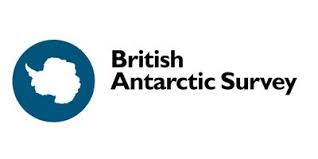British Antarctic Survey (BAS)

Who We Are
British Antarctic Survey (BAS) is a component of the Natural Environment Research Council (NERC). Based in Cambridge, United Kingdom, it has, for over 60 years, undertaken the majority of Britain's scientific research on and around the Antarctic continent. It now shares that continent with scientists from over thirty countries.
BAS employs over 400 staff, and supports three stations in the Antarctic, at Rothera, Halley and Signy, and two stations on South Georgia, at King Edward Point and Bird Island. The Antarctic operations and science programmes are executed and managed from Cambridge, and rely on a wide-ranging team of professional staff.
Ice-strengthened ships sustain the Antarctic operations. RRS James Clark Ross has advanced facilities for oceanographic research. RRS Ernest Shackleton is primarily a logistics ship used for the re-supply of stations. Four Twin Otter aircraft fitted with wheels and skis are operated from Rothera and Halley, while a wheels-only Dash-7 aircraft provides the inter-continental air-link from Rothera to the Falkland Islands, and flies inland to blue ice runways.
The current BAS science research strategy is called Polar Science for Planet Earth (PSPE). The strategy was based on proposals from staff and consists of 6 integrated programmes. In addition the competitive Antarctic Funding Initiative (AFI) provides access to Antarctica for BAS and NERC staff and the UK university community.
The total BAS budget for 2012-2013 is £48.8 million. Of this, £13.5 milllion is spent on the science programme, and £35.3 million spent on supporting the science, which includes the costs of running the ships, aircraft and research stations. The high costs involved highlight the challenges BAS faces in operating within a harsh and remote environment.